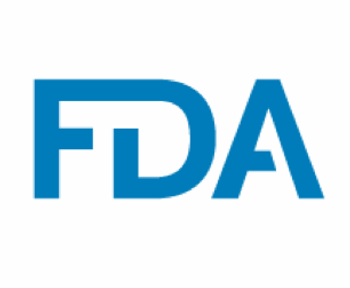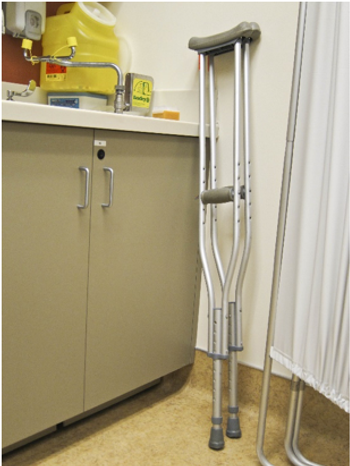
The FDA Amendment Act is on its way toward implementation at years’ end. We reveal the facts on clinical trial disclosure for compliance with these new requirements.

The FDA Amendment Act is on its way toward implementation at years’ end. We reveal the facts on clinical trial disclosure for compliance with these new requirements.

With much happening in the clinical trials industry during 2016, Moe Alsumidaie looks back at some of the innovations that took place. He also looks forward to what the industry can bring us in 2017.

It’s clear that pharma companies are working to embrace patient centricity and figure out where it best fits into their organizations. How this concept will be integrated into the structure of a company remains to be seen.

Congress took a major step yesterday towards shoring up FDA operations and biomedical research supported by the National Institutes of Health with House passage of the 21st Century Cures bill.

With bidding starting to intensify among member states, several factors will determine the EMA’s next home.

The FDA’s Dr. John Whyte recently shared his perspectives on patient centricity at eyeforpharma’s Patient Centered Clinical Trials conference. He continues the discussion by exploring the definition of patient centricity and issues that not only the FDA, but also the industry is facing.

Data sharing in biomedical research has recently attracted widespread attention from physicians, scientists and stakeholders alike. DCRIs Dr. Eric Peterson discusses the context, flaws and positives of how this initiative could be implemented and the effects it can have on the industry.

The latest official review of European health strategy has been released at the request of the European Commission in an attempt to address Europe’s healthcare challenges. Peter O’Donnell reports that the clinical trials community is likely to be disappointed at the report’s findings.

As the discussion on patient centricity continues, industry personnel are attempting to further define the concept. John Whyte of the FDA sits down with us to explain his perspectives and experiences on the subject.

Electronic clinical outcome assessment (eCOA) devices have shown to be effective at avoiding missing data with a failure percentage at less than one percent. Paper back-up provisions produce a lesser value of clinical trials data captured and should be considered outdated.

While many would like to see mHealth and wearable technologies incorporated in clinical trials, regulatory guidance has yet to be established for these innovations. However, some guidances do exist on the regulation and validation of mHealth use in consumer settings.

TransCelerate’s recently published article in a DIA publication covered issues management in clinical trial Quality Management Systems (QMS). Abbvie’s Susan Callery-D’Amico speaks to us about TransCelerate’s QMS Initiative and Issue Management.

A new group of collaborators has formed to determine the benefits and risk tradeoffs Parkinson’s disease patients are willing to make for a potential new therapy. Dr. Brett Hauber of RTI Health Solutions spoke to us about the collaborative.

The ICH is publishing its long-awaited guidelines on how to conduct clinical monitoring in trial management. Sponsors and CROs can integrate existing and emerging technologies while transforming their reactive oversight strategies to an RBM approach using these steps.

Rising patient engagement in drug development has been welcomed when it comes to discussions of policy. In Europe, a new initiative has emerged that aims to improve this theme by finding the right balance into patient links with decision-making on medicines.

The pharma and aerospace industries share similarities whereas both are highly regulated, risk adverse and fast-paced markets. However, if there’s one thing that pharma companies can learn from the aerospace industry, it’s their approach to operations.

As patient centricity continues to evolve, the differences in perspective between sponsors and the FDA over how to define this concept run parallel. With rising awareness will come the need for a definitive model that incorporates patient centricity in drug development.

Key players gathered in Brussels recently gathered to discuss how health technology assessment should be implemented going forward. While cooperation was the main theme, this approach may have proven to complicate rather than alleviate.

The European Medicines Agency’s new website of detailed information on products it has assessed has been launched. Thus begins a new era of open access data for European pharma industry professionals.

The FDA approved Sarepta’s Exondys for Duchenne muscular dystrophy despite little evidence of efficacy, leading many to regard the decision as not being a model for future drug development. The challenge now is to see if confirmatory trials show more benefit, or lack of efficacy.

The European Medicines Agency has started to deliver on its promise of open access to clinical reports for new medicines authorized in the European Union. Peter O’Donnell reports on his experience accessing this database.

This 3-part series presents results from a study of patient preferences regarding electronic Clinical Outcome Assessments in clinical trials. Part 3 covers how sponsors can humanize eCOA to help increase patient engagement during clinical trials.

Risk-based monitoring continues to remain in the spotlight as an accepted and oft implemented approach that is likely to become an industry standard. However, concerns have mounted about the potential impact of these changes on clinical study sites.

Technology advancement has been breaking down traditional barriers and has provided an answer to how the industry can move forward. The Partnerships in Clinical Trials Conference in Boston drove home this approach with three key themes that were present at the event.

Digital innovations are enhancing clinical trials in several ways including recruiting, patient engagement and streamlining data management. Clinical teams will need to develop systematic processes for these new innovations in order to improve their particular trial experience.

This 3-part series presents results from a study of patient preferences regarding electronic Clinical Outcome Assessments in clinical trials. Part 2 covers how sponsors can improve upon their user interface of electronic diaries.

Technology now provides many advances that can determine the future of clinical trials. How sponsors, vendors, regulators and new entrants to the sector manage this transition will determine how effectively the industry adopts these tools.

This 3-part series presents results from a study of patient preferences regarding electronic Clinical Outcome Assessments in clinical trials. Part 1 covers how sponsors can improve the study design and logistics of electronic diaries.

Globalization has increasingly become a part of the clinical trial landscape as pharma sponsors conduct trials internationally. With language barriers being among the challenges of this process, translation management is now a must during the planning phase of a global trial.

Due to mistakes by research professionals, clinical trials have been subject to delays or even cancellations. The National Board of Medical Examiners is working to reverse this trend by introducing an assessment to test the knowledge of clinical researchers.